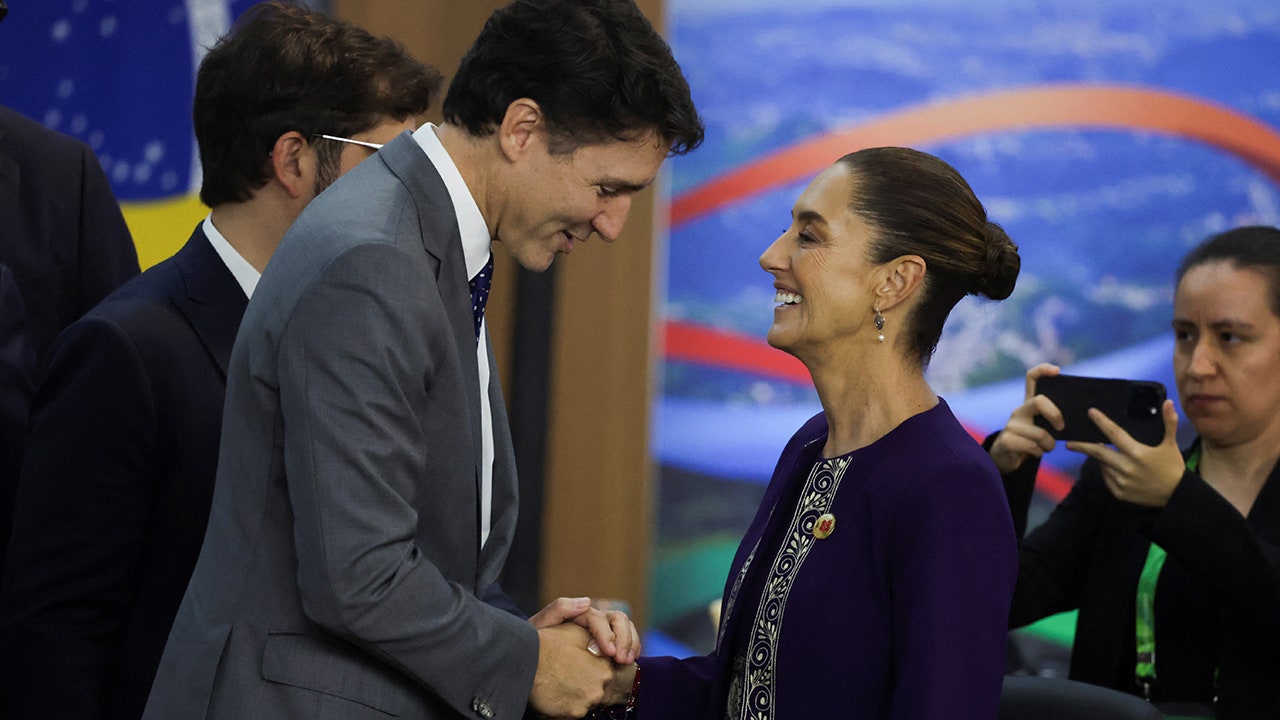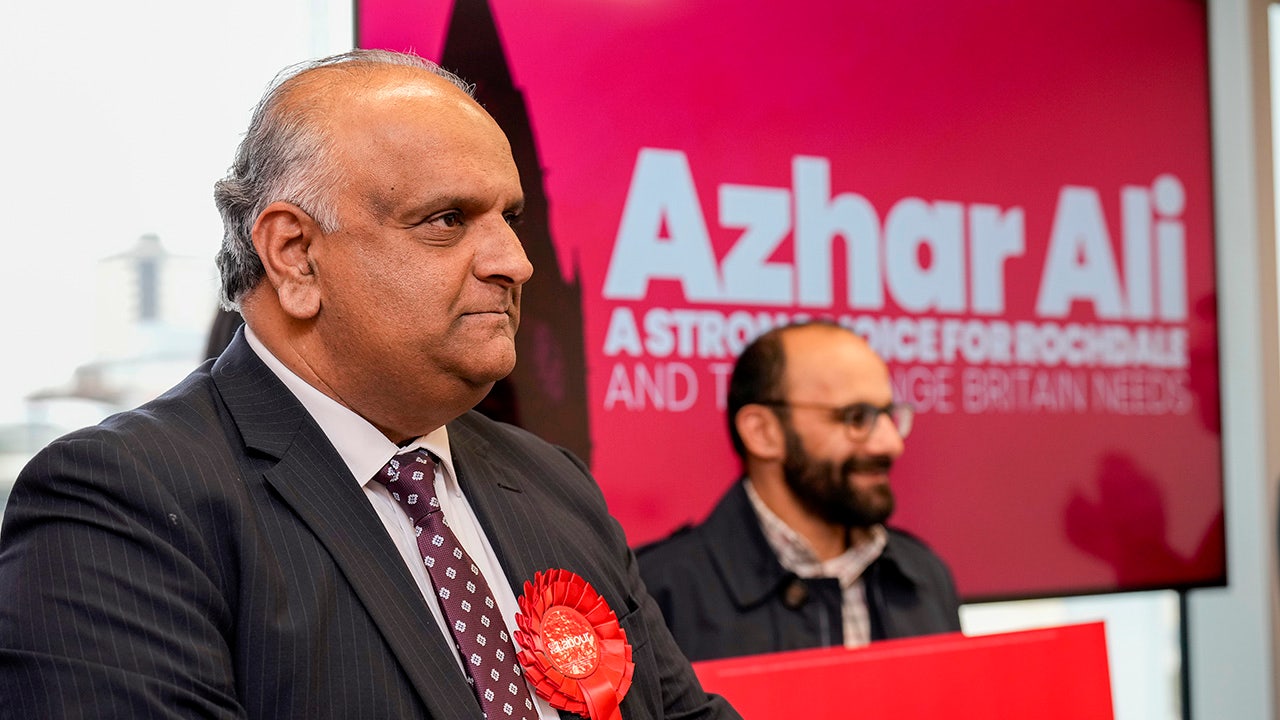Prime Minister Viktor Orban of Hungary met with President Vladimir V. Putin at the Kremlin on Friday, a rare trip to Russia by a Western leader and one that quickly stirred consternation in the European Union.
Mr. Orban made the trip three days after visiting President Volodymyr Zelensky of Ukraine in Kyiv, the Ukrainian capital. And it was the same week that Hungary took over the European Union’s rotating presidency, prompting other European leaders to quickly declare that Mr. Orban was not representing them in Moscow.
A spokesman for Mr. Orban, Zoltan Kovacs, said the Hungarian leader was in Moscow “as part of his peace mission.”
Mr. Putin and Mr. Orban met for more than two hours, but there were no signs that the talks had done anything to influence Mr. Putin. The Hungarian leader appeared to acknowledge as much, telling reporters afterward that the positions of Kyiv and Moscow “are very far apart.”
Mr. Putin standing next to Mr. Orban after their meeting, signaled he was not budging from the sweeping demands he made of Ukraine last month.
At the time, Mr. Putin said in a speech to Russian diplomats that he would be ready for a cease-fire only if Ukraine withdrew troops from the four regions that Moscow has claimed as its own and dropped its aspirations to join NATO.
“Our peace initiative was outlined quite recently,” Mr. Putin said on Friday. “The conditions for this, as I have already said, were set out in my speech at the Ministry of Foreign Affairs.”
Mr. Orban, long an object of European chagrin for his embrace of far-right politics and of authoritarians like Mr. Putin, has said he wants to promote peace negotiations between Russia and Ukraine. Ukrainian leaders have rejected talks with Russia because they say that Mr. Putin would only seek their country’s capitulation.
It was the first time that a European Union leader had visited Russia for an official meeting with Mr. Putin since the first months of the Ukraine invasion. The Austrian chancellor, Karl Nehammer, made the trip in April 2022.
It was Mr. Orban’s second meeting with Mr. Putin since Russia invaded Ukraine in February 2022. He last met the Russian leader in October in Beijing, telling him that Hungary “never wanted to confront Russia” and “has always been eager to expand contacts.”
His visit appeared to have been a last minute affair. It was not announced in advance, and Dmitri S. Peskov, Mr. Putin’s spokesman, told Russian state television that Hungary had proposed Mr. Orban’s visit just two days before he came.
Mr. Orban, who has won four elections in a row by casting his domestic rivals as traitors and warmongers beholden to Brussels, delights in defying his nominal allies in the European Union and NATO, which will be holding a summit meeting in Washington next week.
He presents himself as a maverick in the mold of former President Donald J. Trump, a go-it-alone defender of national interests heedless of establishment opinion. After his meeting with Mr. Putin, Mr. Orban defended his trip as a much-needed start of a dialogue.
“There are many steps that need to be taken to get closer to ending the war,” Mr. Orban said, according to a Russian translation of his remarks. “However, we took the most important step — we established contact.”
His trip to Moscow in defiance of the European Union’s policy of shunning Mr. Putin fits into a long pattern of Hungarian disdain for Europe’s fitful efforts to forge a joint foreign policy.
In recent months, Mr. Orban’s foreign minister, Peter Szijjarto, has repeatedly reached out to autocratic nations kept at arm’s length by Brussels. He has traveled to Belarus, which has been slapped with punishing European sanctions, and Iran, which also has frosty relations with Europe and is also under sanctions.
Other than vague public remarks calling for a “time-bounded cease-fire” during his visit on Tuesday to Kyiv, Mr. Orban has shed no light on how he envisages possible peace in Ukraine.
Ukraine and Russia are not known to have held direct peace negotiations since spring 2022, when weeks of intense talks broke down as both sides dug in on the battlefield. But they have occasionally engaged on specific matters like prisoner exchanges; each side released 75 prisoners of war on May 31 after several months without such exchanges.
Overall, the fight remains a war of attrition. While Russia regained some of the initiative on the battlefield in recent months, it has taken enormous casualties, and neither side appears to have the capacity to achieve a decisive breakthrough.
The Ukrainian Ministry of Foreign Affairs released a statement Friday to reiterate that Mr. Orban made his trip to Moscow “without approval or coordination with Ukraine.”
Russia was not invited to a recent summit in Switzerland aimed at bolstering support for Ukraine’s negotiation positions but Mr. Zelensky has raised the possibility that the Kremlin could be invited to the next international gathering organized by Kyiv.
Mr. Orban’s trip was doubly provocative because Hungary this week took over the European Union’s rotating presidency, a largely clerical role with little real power but one that puts the country holding the six-month position in the spotlight.
Chancellor Olaf Scholz of Germany said that he had not known about Mr. Orban’s trip in advance and, and he was one of many to insist that the Hungarian leader was not representing the European Union.
“Appeasement will not stop Putin,” Ursula von der Leyen, the head of the European Commission, the bloc’s executive arm, wrote on X. “Only unity and determination will pave the path to a comprehensive, just and lasting peace in Ukraine.”
Prime Minister Donald Tusk of Poland addressed a social media post directly to Mr. Orban. “The rumours about your visit to Moscow cannot be true,” Mr. Tusk wrote, “or can they?”
Poland’s previous governing party, Law and Justice, a nationalist force that for years stood shoulder-to-shoulder with Mr. Orban in his battles with Brussels over immigration and other issues, has also been dismayed by Hungary’s outreach to the Kremlin.
In an interview on Thursday, Poland’s former conservative prime minister, Mateusz Morawiecki, voiced alarm at Mr. Orban’s friendly policy toward Russia and what he described as Hungary’s “peace mantra.”
This, he said had made Law and Justice reluctant to join a new Hungarian-led alliance in the European Parliament called Patriots for Europe, despite shared views on many other issues.
“Ukraine is a Rubicon, a kind of red line for us,” Mr. Morawiecki said. “Russia must not win this war.”
Almost all Western leaders have shunned meetings with Mr. Putin since Russia invaded Ukraine, seeking instead to isolate Mr. Putin on the world stage.
Outside the West, however, leaders have not been shy about sitting down with their Russian counterpart: Xi Jinping, China’s leader, met with Mr. Putin this week in Kazakhstan, and Prime Minister Narendra Modi of India is scheduled to visit Moscow next week.
Christopher F. Schuetze and Marc Santora contributed reporting.






